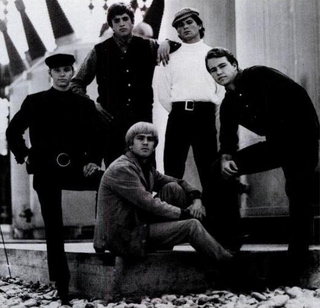
The Electric Prunes are an American psychedelic rock band, formed in Los Angeles, California, in 1965. Much of the band's music was, as music historian Richie Unterberger described it, possessed of "an eerie and sometimes anguished ambiance." Their most successful material was by songwriters Annette Tucker and Nancie Mantz, though the group also penned their own songs. Incorporating psychedelia and elements of embryonic electronic rock, the band's sound was marked by innovative recording techniques with fuzz-toned guitars and oscillating sound effects. In addition, guitarist Ken Williams' and singer James Lowe's concept of "free-form garage music" provided the band with a richer sonic palette and exploratory lyrical structure than many of their contemporaries.

Fuse is the only studio album by the rock band Fuse. It was recorded in 1969 and released in January 1970, before they broke up and with members going on to form Cheap Trick and Silver Fox.

The Music Machine was an American rock band formed in Los Angeles, California in 1966. Fronted by chief songwriter and lead vocalist Sean Bonniwell, the band cultivated a characteristically dark and rebellious image reflected in an untamed musical approach. Sometimes it made use of distorted guitar lines and hallucinogenic organ parts, punctuated by Bonniwell's distinctively throaty vocals. Although they managed to attain national chart success only briefly with two singles, the Music Machine is today considered by many critics to be one of the groundbreaking acts of the 1960s. Their style is now recognized as a pioneering force in proto-punk; yet within a relatively short period of time, they began to employ more complex lyrical and instrumental arrangements that went beyond the typical garage band format.

Thomas Harvey "Sean" Bonniwell was an American singer-songwriter/guitarist, who was known as the creative force behind the 1960s garage rock band, The Music Machine.
Psychedelic folk is a loosely defined form of psychedelia that originated in the 1960s. It retains the largely acoustic instrumentation of folk, but adds musical elements common to psychedelic music.

David Axelrod was an American composer, arranger, and producer. After starting out as a staff producer for record companies specializing in jazz, Axelrod became known by the mid-1960s in soul and jazz circles for his recording skills. In 1968, Axelrod embarked on a solo career and released several albums during the 1970s that showcased his characteristic sound, which combined heavily microphoned drums and baroque orchestration, and avant garde themes ranging from the environment to heightened mental awareness.
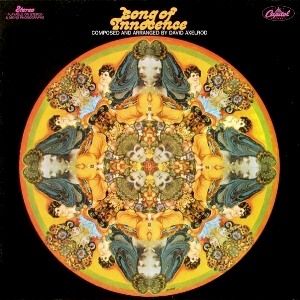
Song of Innocence is the debut album by American composer and producer David Axelrod. It was released in October 1968 by Capitol Records. In an effort to capitalize on the experimental climate of popular music at the time, Axelrod composed the album as a suite-like tone poem interpreting Songs of Innocence, a 1789 illustrated collection of poems by William Blake. Recording took place at Capitol Studios in Los Angeles with an orchestra and studio musicians from the Wrecking Crew collective, including keyboardist and conductor Don Randi, guitarist Al Casey, bassist Carol Kaye, and drummer Earl Palmer.
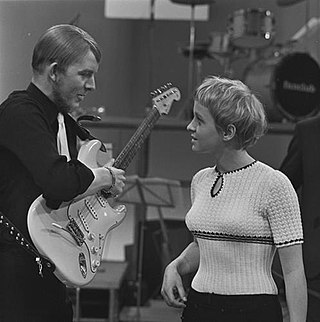
Victor Harvey Briggs III was a British blues and rock musician, best known as the lead guitarist with Eric Burdon and The Animals during the 1966–1968 period. Briggs, a convert to Sikhism, later played classical Indian and Hawaiian music, and adopted the name Antion Vikram Singh Meredith.
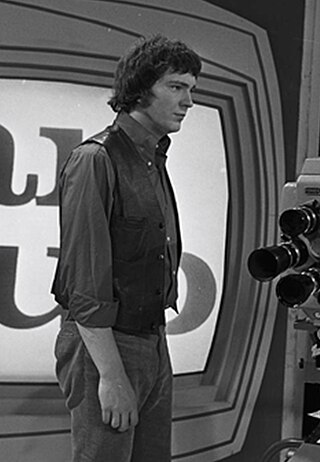
Daniel Joseph "Danny" McCulloch was an English musician best known as the bassist of the 1960s psychedelic rock group Eric Burdon and The Animals.

"Tuesday Afternoon" is a 1968 song written by Justin Hayward that was first released by English rock band the Moody Blues on their 1967 album Days of Future Passed and later released as a single.

If I Were a Carpenter is an album by American singer Bobby Darin, released in 1966. It was a significant change in direction for Darin considering his previous album was a collection of show tunes.
"I Walk on Guilded Splinters" is a song written by Mac Rebennack using his pseudonym of Dr. John Creaux. It first appeared as the closing track of his debut album Gris-Gris (1968), credited to Dr. John the Night Tripper. The song has subsequently been performed and recorded by many other musicians, including Widespread Panic, The Neville Brothers, Cher, Marsha Hunt, Johnny Jenkins, Humble Pie, King Swamp, the Allman Brothers Band, Paul Weller, the Flowerpot Men, Michael Brecker, Tedeschi Trucks Band and Jello Biafra.
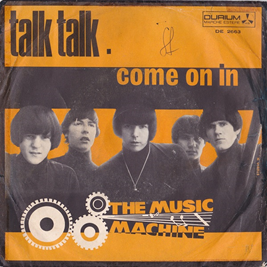
"Talk Talk" is the debut single of American garage rock band the Music Machine. It was released in November 1966, and produced the band's only Top 20 hit on the Billboard Hot 100. The song was included on their debut album, (Turn On) The Music Machine.
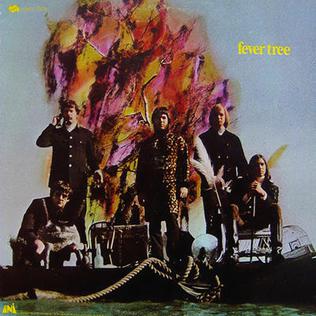
Fever Tree is the debut studio album by the American psychedelic rock band Fever Tree and was released on March 28, 1968 on Uni Records. It blended multiple influences ranging from psychedelia to baroque pop and folk rock, and was marked by eerie ballads and hard rock numbers. Much of the group's material was penned by the husband-wife songwriting duo of Scott and Vivian Holtzman, along with renditions of contemporary rock songs. The album was preceded by arguably Fever Tree's best known song, "San Francisco Girls ", becoming the group's only nationally charting single. Like its attendant single, Fever Tree was also moderately successful and managed to reach number 156 on the Billboard 200.
"The People in Me" is a song by the American garage rock band the Music Machine, written by Sean Bonniwell, and first released as a track on their debut studio album (Turn On) The Music Machine in December 1966 on Original Sound Records.

Ignition is a compilation album by the American garage rock band, The Music Machine, and was released on June 27, 2000 on Sundazed Records. It includes an assortment of rare singles, outtakes, and previously unreleased material spanning from when the group went under the moniker, the Raggamuffins, in 1965, to their disbandment in 1969. The Raggamuffins were a folk rock trio led by Sean Bonniwell, and the prototype group that developed an experimental hard-edge sound, before recruiting two additional members and becoming the Music Machine. By 1969, all the original members, except Bonniwell, departed the group, which was then known as the Bonniwell Music Machine. Though the band would no longer produce hits, such as "Talk Talk" and "The People In Me", it was Bonniwell's most ambitious recording period as he incorporated elements of psychedelia and pop rock into the group's music.

The Bonniwell Music Machine is the second and final album by the American garage rock band The Music Machine, recorded under the renamed moniker The Bonniwell Music Machine, and released on Warner Bros. Records on February 10, 1968. As with their debut LP, the album again saw the band blending garage and psychedelic rock influences, albeit with a greater emphasis on psychedelia than on their previous album release. Prior to completing its recording, all of the group's original members, except for its creative force, Sean Bonniwell, departed, though they would still appear on some of the album's tracks.

The Remains is the debut album by the American garage rock band the Remains, and was released on Epic Records in September 1966. Though the album was largely overlooked at the time of its original release, The Remains has since received recognition as one of the more cohesive efforts of the era.

(Turn On) The Music Machine is the debut studio album by the American garage rock band The Music Machine, released on Original Sound Records on December 31, 1966. It arrived just months after the group's hit single, "Talk Talk", propelled to number 15 on the national charts. Although the album was hastily recorded to capitalize on the Music Machine's popularity, (Turn On) The Music Machine became a moderate hit on the Billboard Top LPs chart, and is hailed today as a classic garage rock album. Another single, "The People in Me" was also released in support of the album.
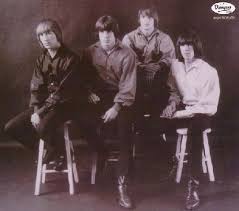
The Redcoats were an American garage rock band formed in Wildwood, New Jersey, in 1964. Heavily influenced by the Beatles from the onset, the group released one single as the Redcoats before recording as the Sidekicks. As the Sidekicks, the band earned a national hit with their tune, "Suspicions", and recorded an album in 1966. In 2001 an album of newly discovered recordings, Meet the Redcoats! Finally, was issued.

















